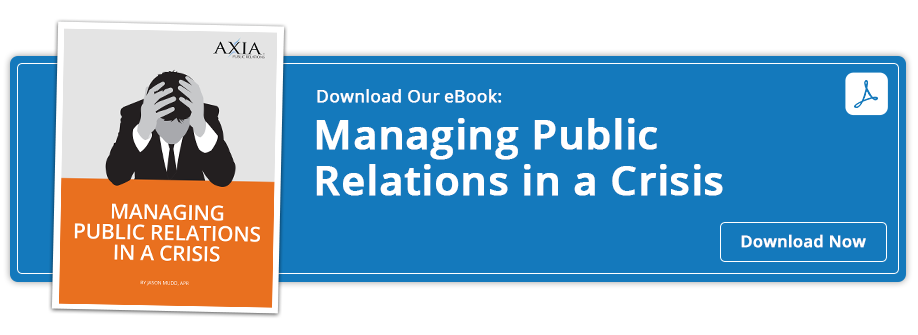 You can’t control it so let PR show you how to best prepare for it
You can’t control it so let PR show you how to best prepare for it
Severe thunderstorms and heavy winds strike when you least expect them. Potential hurricanes and flooding, which can occur anytime from June to November, are a yearly threat. Lightning that strikes with or without rain is especially troublesome. Tropical storms can ruin anyone’s best-laid plans. Is your company ready?
Mother Nature can be both splendid and cruel, and many companies may find themselves in crisis due to her whims. While we are ultimately at her mercy, we don’t have to stop creating events and programs. Your company can weather any storm with the right foresight, and planning and PR can help.
How to handle harsh weather
If you are having an outdoor event, it is vital to have weather safety procedures in place beforehand. This may include a quick way to announce changes to attendees and a safe location nearby where people can seek shelter.
Have a disaster plan and share it with every member of your organization. This should cover extreme conditions, such as a hurricane or fire, under which your business might be closed for a few days. You can also ask your local emergency management office to review your plan to ensure that you don’t forget or omit anything.
Monitor the weather. There is always a chance that harsh weather will force you to postpone or cancel your plans. You may be able to minimize the possibility by checking long-range weather forecasts or hiring a local meteorological expert as a consultant.
Act quickly. If you notice darkening clouds or distant rumbles of thunder, don’t just cross your fingers and just hope it will go away. Make preparations to keep attendees and staff safe.
Create an inclement weather plan. This should encompass more minor occurrences such as icy road conditions or torrential rain. Your plan must answer key questions employees may have such as: Should all employees come to work? How do we find out if the office is closed? Will we be paid for the day? How will you let customers know? Will it be possible to work remotely? Having a strong inclement weather policy will help prevent uncertainties. In addition, you should communicate it often, with frequent reminders and status updates.
Review your insurance and risk management policies. One of the most common crises faced by businesses is lawsuits, workers’ compensation claims and accidents as a result of inclement weather. For example, a customer could slip and fall on a wet floor or an employee could sustain an injury on an icy loading dock.
Develop a crisis management document. This should cover how you will communicate with the media, public and internal audiences if a crisis does occur. It must clearly state who is permitted to address the media, which personnel are part of the immediate response team and how organizational messages will be distributed. There should also be a business continuity section to detail an official chain of command. For instance, you wouldn’t want your vice presidents fighting over who should take charge in your absence.
Why inclement weather planning is important
Studies have shown that more than half of American businesses have no written plan for managing weather-related crises. Researchers found that even after Hurricane Sandy pummeled New York City in 2012, a year later, most businesses still did not have any kind of plan for disaster, leaving them vulnerable for the next calamity.
Remember this rule: If you don’t plan ahead, it’s harder to bounce back. Communicating quickly is important, but you must first know what and how to communicate.
At Axia Public Relations, we can create and implement your crisis plans with the right messages to help ensure that your company can handle any problem Mother Nature throws your way. Contact us today or download our e-book Managing Public Relations in a Crisis for more tools and tips to keep your business growing.

 Lisa Goldsberry is a writer for Axia Public Relations with more than 15 years of public relations experience. She specializes in business, higher education and technology PR. Connect with Axia Public Relations on Twitter @axiapr.
Lisa Goldsberry is a writer for Axia Public Relations with more than 15 years of public relations experience. She specializes in business, higher education and technology PR. Connect with Axia Public Relations on Twitter @axiapr.
Featured image credit: 123rf.com
Topics: public relations, crisis communications

Comment on This Article